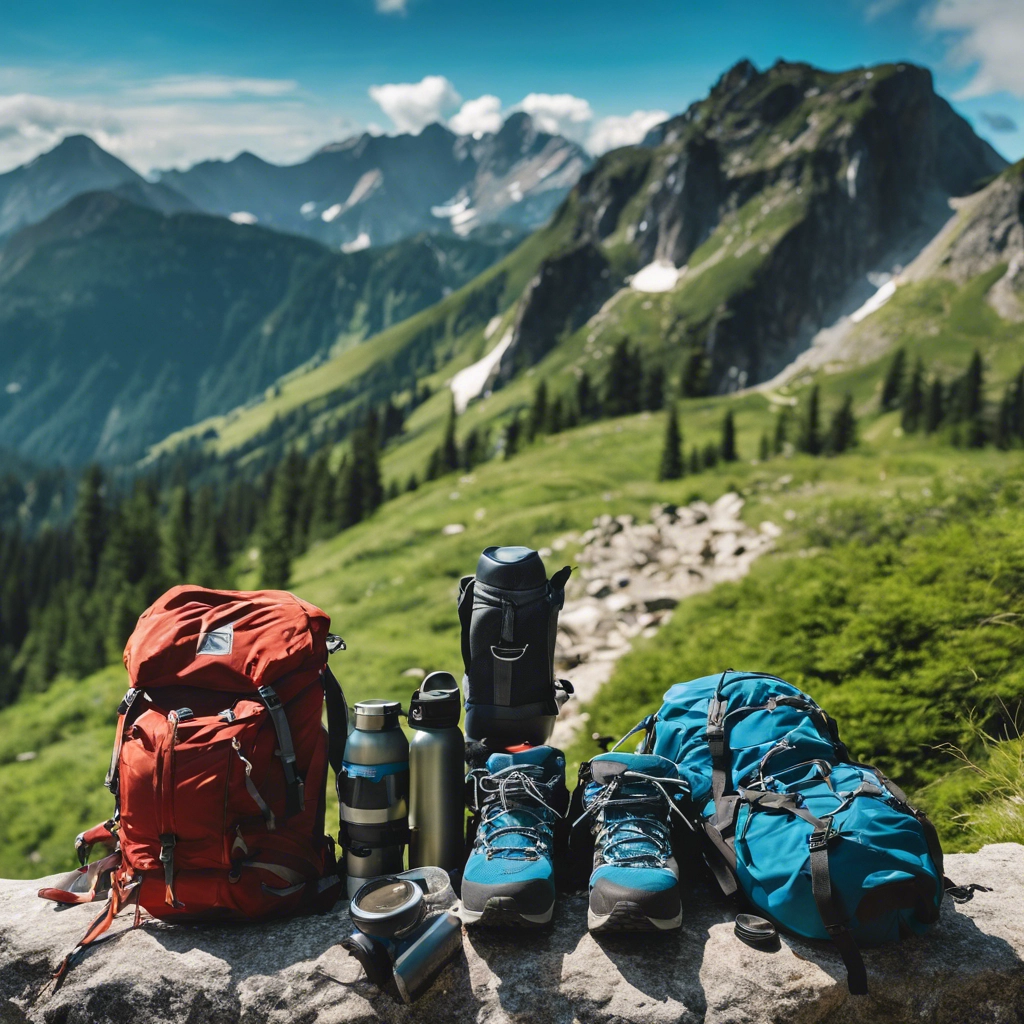Introduction
Introduction: Hiking is one of the most rewarding ways to experience the beauty of nature, but setting off without the right gear can quickly turn an adventure into a struggle. Whether you’re tackling short day hikes or preparing for longer treks, having the right equipment is crucial for your safety and comfort. In this guide, we’ll explore the top 10 essential hiking gear items every beginner should have in 2024.
1. Hiking Boots
Your feet are your greatest asset when hiking, and the right pair of boots can make all the difference. Look for boots that offer a balance of comfort, ankle support, and durability.
- Key Features: Waterproof, breathable materials, and a strong grip for uneven terrain.
- Recommended Brands: Salomon, Merrell, and Columbia.
2. Backpack
A quality hiking backpack is crucial to carry your gear comfortably. Beginners should look for a backpack that is lightweight but sturdy, with enough space for essentials like water, snacks, and extra layers.
- Choosing the Right Size: For day hikes, a 20-30 liter backpack is ideal. For longer hikes, you may need 40 liters or more.
- Lightweight vs. Durable: Focus on a pack with padded straps and ventilation, without sacrificing durability.
3. Water Bottle or Hydration System
Staying hydrated is key to a successful hike. You can either use a water bottle or a hydration pack, depending on your preferences.
- Hydration Packs vs. Water Bottles: Hydration packs allow for hands-free drinking, while water bottles are simpler to refill.
- Best Practices: Drink regularly, even if you don’t feel thirsty, to avoid dehydration.
4. Weather-Appropriate Clothing
Weather can change unexpectedly, so it’s important to dress in layers that can be added or removed as needed. Start with moisture-wicking base layers and add insulating layers, followed by a waterproof jacket.
- Layering: Base layer (wicking), middle layer (insulation), outer layer (waterproof).
- Essential Clothing for All Seasons: Breathable hiking pants, wool socks, and sun protection (hat, sunglasses, sunscreen).
5. Navigation Tools
Even on marked trails, a navigation tool is critical. While many hikers rely on smartphones, having a physical map and compass is important as backup in case your device fails.
- GPS Devices vs. Paper Maps: GPS is convenient, but a map and compass never run out of battery.
- Learning to Use Compass and Map: Familiarize yourself with basic navigation to avoid getting lost.
6. First Aid Kit
Accidents can happen, even on short hikes. A first aid kit should be part of your essential gear.
- Must-Have Items: Bandages, antiseptic wipes, pain relievers, blister treatment, and tweezers.
- Customizing Your Kit: Add items that suit your personal needs (e.g., allergy medications).
7. Multi-Tool or Knife
A multi-tool can serve a variety of purposes, from fixing gear to preparing food.
- Top Uses: Cutting rope, repairing gear, or even emergency situations.
- Best Beginner-Friendly Tools: Leatherman and Swiss Army Knife are great multi-tool options for hikers.
8. Headlamp or Flashlight
A reliable light source is crucial if you end up hiking after sunset or in low-light conditions.
- Why Lighting is Essential: If your hike takes longer than expected, a headlamp or flashlight helps keep you safe.
- Best Options: Choose a lightweight, waterproof headlamp or flashlight with long battery life.
9. Trekking Poles
Trekking poles provide extra stability, reduce stress on your knees, and help with balance on tricky terrain.
- Benefits of Trekking Poles: They can make steep climbs easier and reduce fatigue over long distances.
- Top Picks: Leki, Black Diamond, and REI Co-op poles are great for beginners.
10. Emergency Shelter
Even on a day hike, it’s smart to carry a small, lightweight emergency shelter in case you get caught in bad weather or an unexpected situation.
- Types of Portable Shelters: Bivy sacks, emergency blankets, or ultralight tents can provide essential cover.
- Lightweight and Compact: Look for shelters that pack down small but can offer protection in emergencies.
Bonus: Other Useful Accessories
While not considered essential, these items can make your hike more comfortable and safe:
- Sunscreen & Insect Repellent: Protect your skin from the sun and bites.
- Sunglasses: Ensure you’re protected from UV rays, especially in high altitudes.
Conclusion
Preparing for your first hike in 2024 is about more than just hitting the trail—it’s about ensuring you have the right gear to stay safe, comfortable, and ready for anything. With these 10 essential hiking items, beginners can explore the outdoors with confidence and fully enjoy the adventure ahead.
